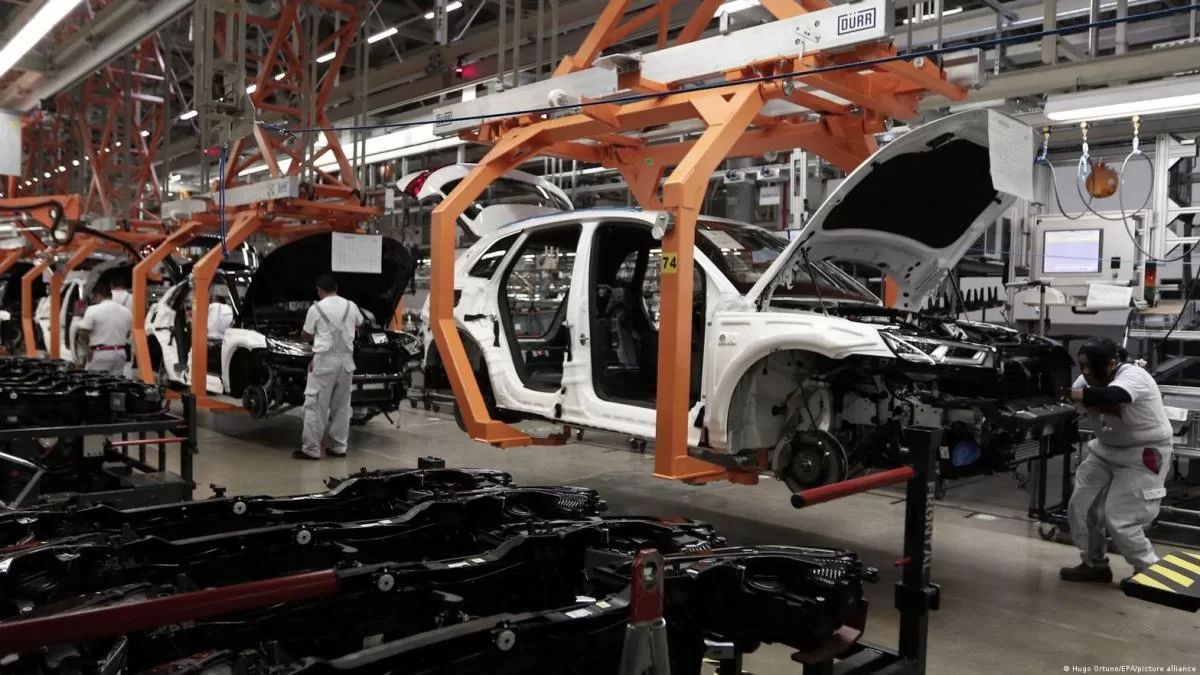Recently, a business delegation headed by the German ambassador in Mexico, Wolfgang Dold, traveled to the northern Mexican state of Sonora, bordering Arizona. German companies such as Siemens Energy, Linde, RWE and Daimler Trucks were part of the entourage.
“The Ministry of Economy invited us to present Plan Sonora,” says Edwin Schuh, director for Mexico and the Caribbean at Germany Trade & Invest (GTAI), a German foreign trade agency financed by the Federal Ministry of the Economy. The Sonora Sustainable Energy Plan is an ambitious central government infrastructure project that aims to promote the construction of solar parks and lithium extraction. Sonora is home to the largest lithium deposits in Mexico, nationalized in 2022. “The Government plans to produce batteries for electric cars in Sonora. An interesting plan for the German car companies”, says Schuh.
US automaker Ford already has a huge plant in Hermosillo, and some German suppliers are also present. Mexico created a special office that deals with the establishment of companies: the Single Window for Investors and the Single Registry of Investment Projects, called “Ventanilla de nearschoring”.
When two fight…
“Nearshoring” is the new magic word in Mexico. Instead of shipping goods halfway around the world in containers, many companies are now looking to move production close to major sales markets.
Several factors come together in this process. The pandemic exposed the vulnerability of supply chains; Closures and the consequent production and delivery failures, as well as the drastic increase in transport costs, have created enormous problems for many companies. In addition, the trade conflict between the US and China has intensified in recent years. Added to this is the rise in wages in China.
Because of its proximity to the US, Mexico in particular is benefiting from this, says Schuh. The figures are showing it. Some 18.6 billion dollars in direct foreign investment arrived in Mexico in the first quarter of 2023, an increase of almost 50% compared to the same period of the previous year. And now, according to Washington Postthe United States imports less and less goods from China, while Mexico climbs as the most important trading partner.
This trend is favored by the Free Trade Agreement between the United States, Mexico and Canada (T-MEC or USMCA), which entered into force in the summer of 2020.
Many companies move their production
“The special thing is that the companies are producing here in Mexico,” says Schuh. In March, the electric car manufacturer Tesla announced the construction of a new assembly plant in Nuevo León and plans to invest some 5,000 million dollars in it in the coming years. Microsoft, for its part, is investing hundreds of millions of dollars in a data center in Querétaro, central Mexico.
“But many Chinese companies are also coming, such as Hisense electronics, which they then produce here in Mexico for the US market,” adds Schuh. To these are added companies from Japan, South Korea and Taiwan. In addition, “because of the conflict between China and Taiwan, companies want to minimize risk.”
Strong presence of German car manufacturers
The North American Free Trade Agreement (T-MEC) has made Mexico one of the most important places in the world for the automobile industry. A significant portion of US auto production has been outsourced to Mexico; also an important production site for German car manufacturers such as VW, Audi, BMW or Daimler.
The T-MEC -the successor agreement of NAFTA- introduced greater requirements for automakers to add value in North America itself, that is, the mandatory quota of parts produced in the region, which contributes to the expansion of the same production . “Most of the companies are already here, but they are just expanding their production in Mexico,” explains Schuh.
In addition, there is a “tendency to switch to electric mobility.” At the beginning of February, the German automaker BMW announced an investment of more than 800 million dollars in Mexico to integrate its San Luis Potosí plant into its global electromobility network. Audi also announced a project to produce electric vehicles in Mexico; Volkswagen, for its part, is investing more than 700 million dollars, including the construction of a new paint shop at its Puebla plant. The largest German company in Mexico, with 25,000 employees, automotive supplier ZF Friedrichshafen, is also investing heavily.
There is insecurity, but there is a lack of labor, water and renewable energy
But there are also problems: a German car supplier is moving its factory from Tamaulipas, the neighboring state of Nuevo León, because managers there they could only move when accompanied by heavily armed security guards.
Another problem is manpower, according to the director of GTAI, it is difficult to find qualified personnel. In addition, in the north, in particular, Mexico also has serious problems of drought and acute scarcity of water, which has even forced it to be rationed and restrict industries that consume large quantities.
Another additional problem is that “German companies have committed to increasing the percentage of renewable energy until 2030 worldwide” and in Mexico, companies would have to buy electricity from CFE, the state electricity company. And CFE has mainly gas and coal power plants. President López Obrador prefers to depend on fossil fuels instead of the energy transition.
(young/el)





